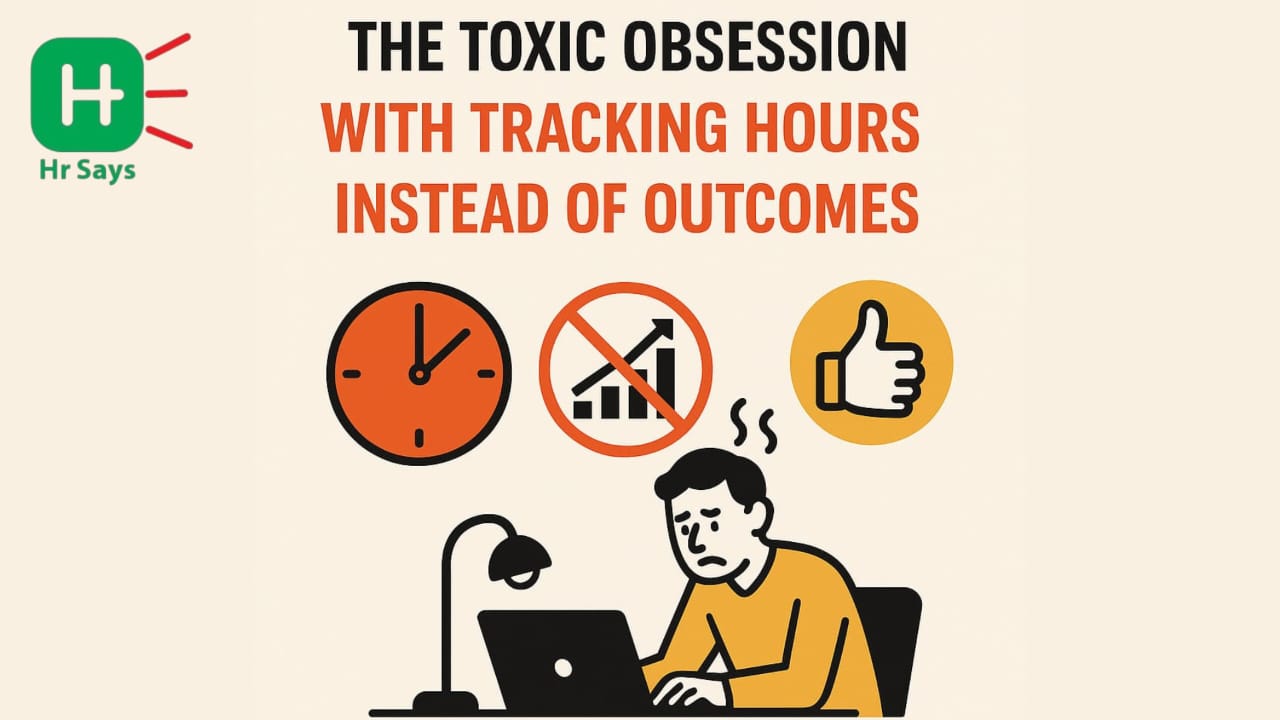There was a time, not long ago, when HR believed that more data would lead to better decisions. We thought that if we could measure productivity down to the minute, we’d finally have a handle on performance. And so, we built systems. Dashboards bloomed. Time logs became gospel. Every hour, every click, every login quantified and archived. But three years later, after chasing every productivity trend and implementing every tracking tool we could justify, we arrived at an unexpected truth: we didn’t unlock better performance. We just lost sight of why we were measuring it in the first place.
In our quest for accountability, HR professionals became gatekeepers of metrics rather than guardians of meaning. We started rewarding visibility over value. Presence became the new performance. Quiet thinking was penalized, while hyperactivity got gold stars. And as remote and hybrid work reshaped office culture, we clung to digital surveillance like a lifeline, afraid to let go of control in an era where autonomy should’ve taken the lead.
The intention wasn’t flawed. We wanted clarity, structure, and fairness. But instead of building trust, we built mechanisms of mistrust. Our frameworks turned into frameworks of fear, of being invisible, of being misunderstood, of being seen as “unproductive” simply for working differently.
HR was never meant to be the watchdog of screens. We’re not here to count hours; we’re here to cultivate impact. But the tools we chose often missed that nuance. Time tracking systems told us who was online, but not who was innovating. Productivity dashboards lit up with activity, but rarely with insight. And what we labeled as performance was sometimes just the anxiety of being watched.
Now, the pressure is mounting. Leadership wants numbers. Employees want flexibility. And HR stands in the crossfire, asked to prove ROI while preserving culture. But here's the reality: we can’t Excel sheet our way to engagement. We can’t measure morale with a timestamp. And we certainly can’t automate the human side of work.
The future of performance isn’t more tracking it’s smarter trust. It’s moving beyond presence and diving deep into outcomes. It’s acknowledging that results don’t always follow a linear path, and that performance isn’t always loud. Sometimes, the most valuable contribution is silent, strategic, and slow burning. Are we ready to acknowledge that?
We in HR need to evolve from productivity enforcers to performance architects. That means designing systems that reward what matters which is outcome, not optics. It means pushing back against the obsession with clocking in and speaking up for outcome based work models that prioritize clarity, autonomy, and actual impact.
And perhaps most importantly, it means reframing the conversation. Instead of asking “How many hours were worked?” let’s start asking “What did we move forward?” Instead of spotlighting activity, let’s reward alignment with goals. Let’s get comfortable with less noise and more substance.
This shift demands more than new tools it demands new thinking. It requires HR professionals to become translators of value, not just trackers of time. It requires us to educate leadership on the difference between data and insight, between output and outcome. It means leading with questions that matter: What’s our North Star? Are our people equipped to get there? Are we rewarding the behaviors that lead us toward it?
If we don’t make this shift, we risk exhausting talent while pleasing no one. Burnout becomes normalized, and the truly productive like the deep thinkers and the quiet problem solvers begin to disengage. We lose the very people who could’ve taken us forward because we were too busy watching who was “active.”
So let’s rethink what productivity means. Not just for employees, but for us in HR. Because if all our systems, tools, and processes are geared toward measuring the wrong thing, then we’re not supporting the business we’re distracting it.
After three years of obsessively tracking productivity, we finally understand that performance isn’t a spreadsheet. It’s a story. It’s progress. It’s purpose. And if HR doesn't lead the narrative, who will?
Let’s stop trying to prove people are working and start enabling them to do work that’s worth proving

 engage. We lose the very people who could’ve taken us forward because we were too busy watching who was “active.”
engage. We lose the very people who could’ve taken us forward because we were too busy watching who was “active.”








.jpeg)
.jpeg)

.jpeg)





.jpeg)



.jpeg)

.jpeg)



